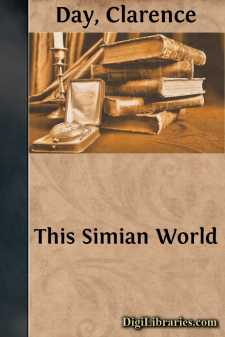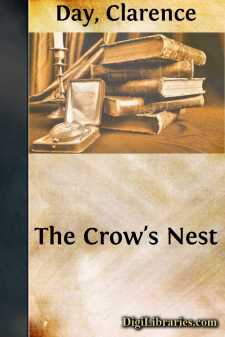Categories
- Antiques & Collectibles 13
- Architecture 36
- Art 48
- Bibles 22
- Biography & Autobiography 814
- Body, Mind & Spirit 145
- Business & Economics 28
- Children's Books 17
- Children's Fiction 14
- Computers 4
- Cooking 94
- Crafts & Hobbies 4
- Drama 346
- Education 56
- Family & Relationships 59
- Fiction 11833
- Foreign Language Study 3
- Games 19
- Gardening 17
- Health & Fitness 34
- History 1378
- House & Home 1
- Humor 147
- Juvenile Fiction 1873
- Juvenile Nonfiction 202
- Language Arts & Disciplines 89
- Law 16
- Literary Collections 686
- Literary Criticism 179
- Mathematics 13
- Medical 41
- Music 40
- Nature 179
- Non-Classifiable 1768
- Performing Arts 7
- Periodicals 1453
- Philosophy 66
- Photography 2
- Poetry 897
- Political Science 203
- Psychology 45
- Reference 154
- Religion 516
- Science 126
- Self-Help 85
- Social Science 82
- Sports & Recreation 34
- Study Aids 3
- Technology & Engineering 59
- Transportation 23
- Travel 463
- True Crime 29
Our website is made possible by displaying online advertisements to our visitors.
Please consider supporting us by disabling your ad blocker.
This Simian World
by: Clarence Day
Description:
Excerpt
"How I hate the man who talks about the 'brute creation,' with an ugly emphasis on /brute/. . . . As for me, I am proud of my close kinship with other animals. I take a jealous pride in my Simian ancestry. I like to think that I was once a magnificent hairy fellow living in the trees, and that my frame has come down through geological time via sea jelly and worms and Amphioxus, Fish, Dinosaurs, and Apes. Who would exchange these for the pallid couple in the Garden of Eden?"
W. N. P. Barbellion.
I
Last Sunday, Potter took me out driving along upper Broadway, where those long rows of tall new apartment houses were built a few years ago. It was a mild afternoon and great crowds of people were out. Sunday afternoon crowds. They were not going anywhere,—they were just strolling up and down, staring at each other, and talking. There were thousands and thousands of them.
"Awful, aren't they!" said Potter.
I didn't know what he meant. When he added, "Why, these crowds," I turned and asked, "Why, what about them?" I wasn't sure whether he had an idea or a headache.
"Other creatures don't do it," he replied, with a discouraged expression. "Are any other beings ever found in such masses, but vermin? Aimless, staring, vacant-minded,—look at them! I can get no sense whatever of individual worth, or of value in men as a race, when I see them like this. It makes one almost despair of civilization."
I thought this over for awhile, to get in touch with his attitude. I myself feel differently at different time about us human-beings: sometimes I get pretty indignant when we are attacked (for there is altogether too much abuse of us by spectator philosophers) and yet at other times I too fell like a spectator, an alien: but even then I had never felt so alien or despairing as Potter. "Let's remember," I said, "it's a simian civilization."
Potter was staring disgustedly at some vaudeville sign-boards.
"Yes", I said, "those for example are distinctively simian. Why should you feel disappointment at something inevitable?" And I went on to argue that it wasn't as though we were descended from eagles for instance, instead of (broadly speaking) from ape-like or monkeyish beings. Being of simian stock, we had simian traits. Our development naturally bore the marks of our origin. If we had inherited our dispositions from eagles we should have loathed vaudeville. But as cousins of Bandarlog, we loved it. What could you expect?
If we had been made directly from clay, the way it says in the Bible, and had therefore inherited no intermediate characteristics,—if a god, or some principle of growth, had gone that way to work with us, he or it might have molded us in much more splendid forms.
But considering our simian descent, it has done very well. The only people who are disappointed in us are those who still believe that clay story. Or who—unconsciously—still let it color their thinking.
There certainly seems to be a power at work in the world, by virtue of which every living thing grows and develops. And it tends toward splendor. Seeds become trees, and weak little nations grow great. But the push or the force that is doing this, the yeast as it were, has to work in and on certain definite kinds of material. Because this yeast is in us there may be great and undreamed of possibilities awaiting mankind; but because of our line of descent there are also queer limitations.
III
In those distant invisible epochs before men existed, before even the proud missing link strutted around through the woods (little realizing how we his greatgrandsons would smile wryly at him much as our own descendants may shudder at us, ages hence) the various animals were desperately competing for power....



